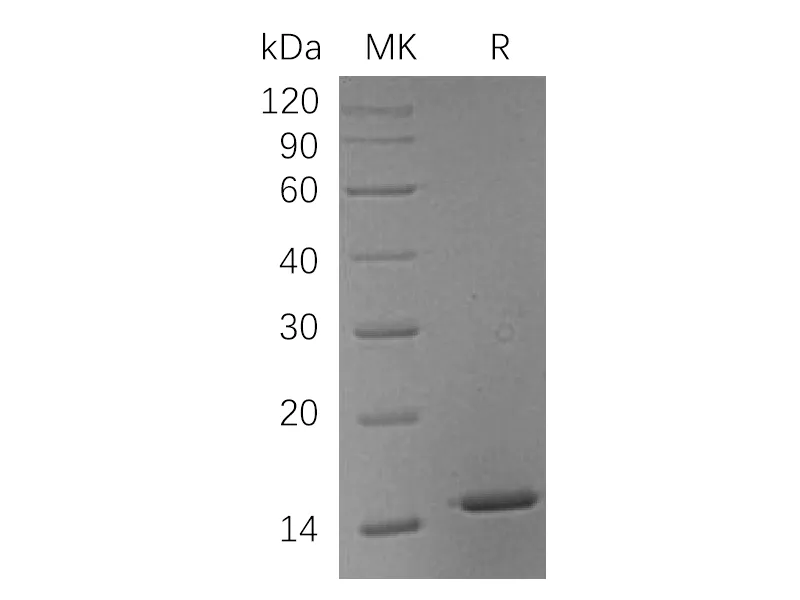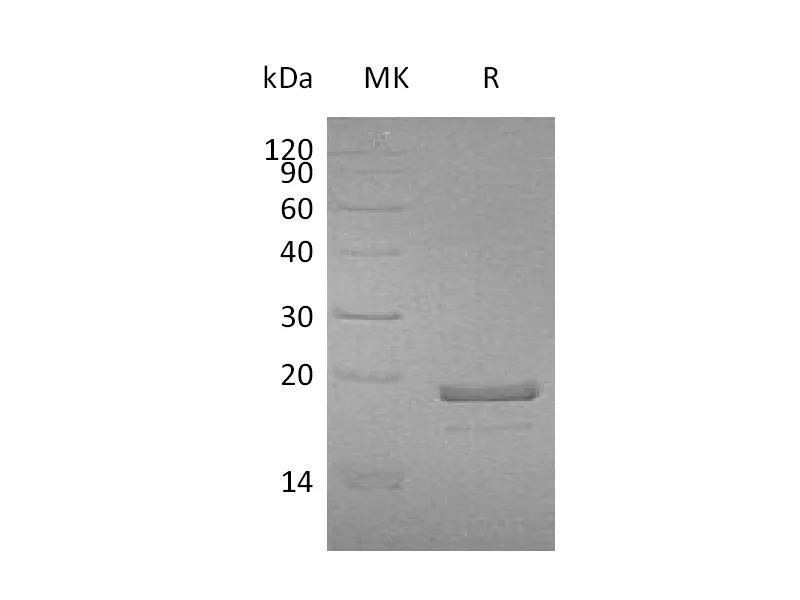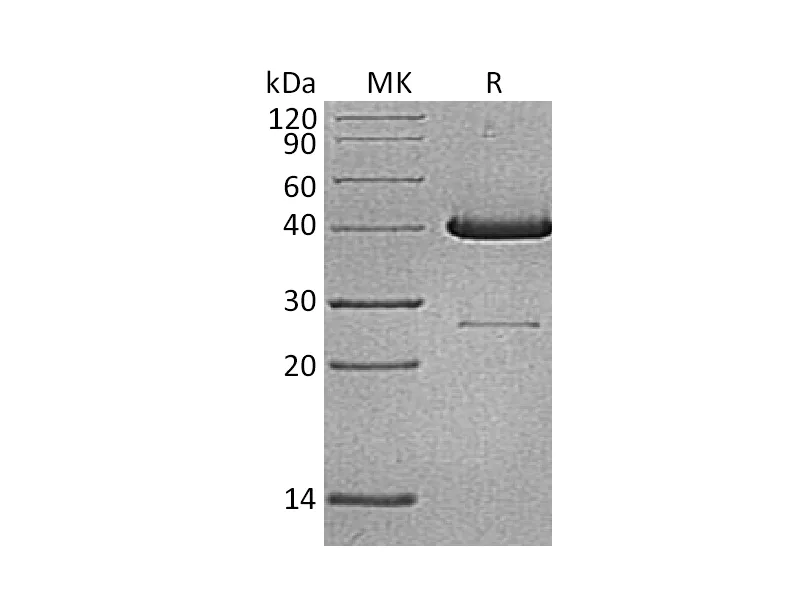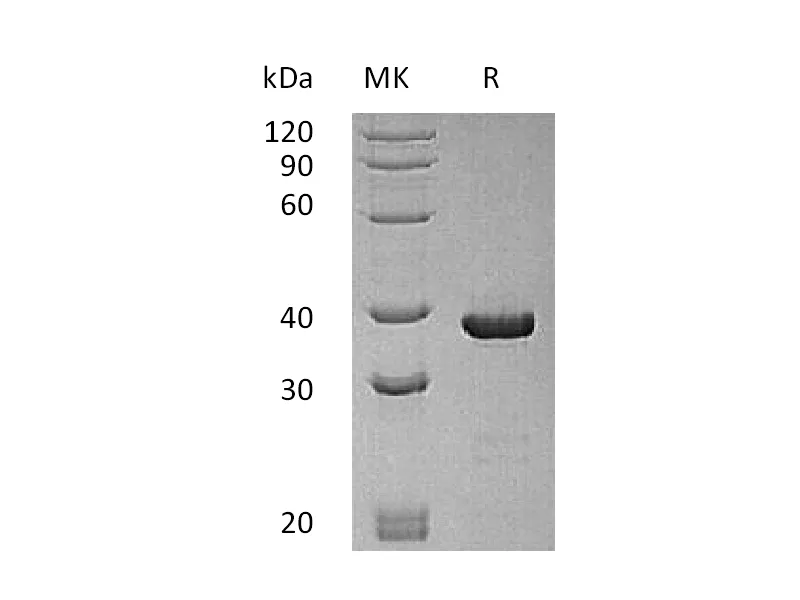| 产品名称 |
Recombinant Human CD20 (C-6His-Flag) |
| 英文名称 |
CD20/B-lymphocyte antigen CD20 |
| 纯度 |
Greater than 95% as determined by reducing SDS-PAGE |
| 内毒素 |
<1 EU/µg as determined by LAL test. |
| 蛋白构建 |
Recombinant Human B-lymphocyte antigen CD20 is produced by our Mammalian expression system and the target gene encoding Met1-Pro297 is expressed with a 6His, Flag tag at the C-terminus.The product is not recommended for cell based experiments.*The product is not recommended for cell based experiments. |
| Accession |
P11836 |
| 表达宿主 |
Human cells |
| 种属 |
Human |
| 预测分子量 |
35.1 kDa |
| 制剂 |
Supplied as a 0.2 μm filtered solution of 50mM HEPES-Na, 150mM NaCl, 0.02%DDM, 0.004%CHS, 5%Glycerol, pH7.5. |
| 运输方式 |
The product is shipped on dry ice/polar packs.Upon receipt, store it immediately at the temperature listed below. |
| 稳定性&储存 |
Store at ≤-70°C, stable for 6 months after receipt.Store at ≤-70°C, stable for 3 months under sterile conditions after opening. Please minimize freeze-thaw cycles. |
| 复溶 |
| 分子别名 |
| B-lymphocyte antigen CD20; B-lymphocyte surface antigen B1; Leukocyte surface antigen Leu-16; Membrane-spanning 4-domains subfamily A member 1; Bp35; CD20; MS4A1 |
| 背景介绍 |
| CD20 is a 33-37 kDa non-glycosylated protein expressed on the surface of normal and malignant B lymphocytes, and belongs to the MS4A (membrane-spanning 4-domain family A) protein family. CD20 protein consists of four hydrophobic transmembrane domains, one intracellular and two extracellular domains (large and small loops) with both N- and C- termini residing within the cytosol. CD20 is also known to be physically coupled to major histocompatibility complex class II (MHCII), CD40 molecule, BCR, and the C-terminal src kinase-binding protein (CBP) that interacts with Src kinases such as LYN, FYN, and LCK. CD20 deficiency resulted in a reduced number of circulating memory B cells, reduced isotype switching of Ig, and decreased IgG antibody levels. In agreement with this observation, challenging the patient’s primary B cells in vitro using T-dependent and Tindependent antigens led to the normal proliferation and secretion of IgM but reduced production of IgG. |
注意事项
本司产品仅用于科研,不用于临床诊断和治疗




